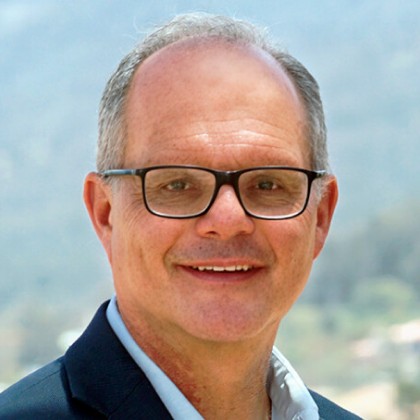Diego Quiroga is the Rector of the Universidad San Francisco de Quito (USFQ), where he has played a key role in its growth and academic consolidation. With more than 30 years of experience at the institution, he has led strategic initiatives in the areas of postgraduate studies, research and international programmes, contributing to the positioning of USFQ as the No. 1 university in Ecuador in the QS Latin America Rankings .
Before assuming the rectorship, he held the position of Dean of Research and International Programmes and co-directed the Galapagos Institute of Arts and Sciences (GAIAS). He was also one of the driving forces behind the Galapagos Science Center, a joint initiative with the University of North Carolina at Chapel Hill, which has enabled the development of high-impact research in the Galapagos Islands.
Diego received his Bachelor of Arts degree from the University of California, Berkeley, and his Ph.D. in Anthropology from the University of Illinois at Urbana-Champaign. His academic and research career spans areas such as Urban Ecology, Political Ecology and Medical Anthropology, with a focus on regions of high biodiversity such as Galapagos, the Amazon and the Andes. He has led projects on biodiversity, vulnerability and traditional medicine, contributing to the knowledge and conservation of these environments.
As rector, he promotes a vision of the university as a key player in the innovation ecosystem, promoting the connection between academia, communities and the productive sector. He has strengthened the relationship between scientific research and the country’s economic development, with the aim of generating knowledge aligned with social needs and providing sustainable solutions to global challenges.
Its management model is based on the Liberal Arts approach, fostering interdisciplinarity and collaborative work between different areas of knowledge. Under his leadership, USFQ continues to consolidate its academic excellence, its international projection and its commitment to innovation and sustainability.
